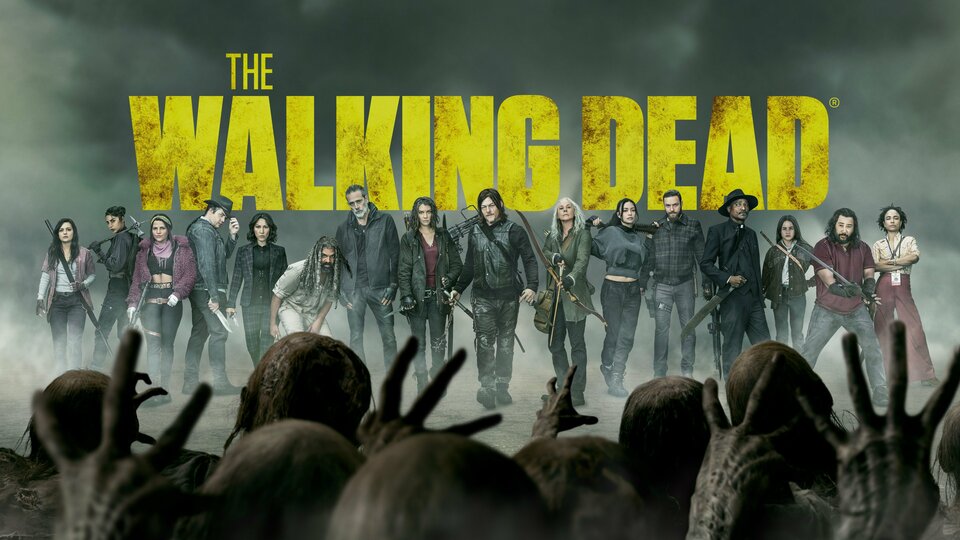Since its debut, The Walking Dead has captivated millions of fans worldwide with its intense storytelling, rich characters, and apocalyptic themes. This popular TV show, based on the comic series by Robert Kirkman, has taken viewers on an emotional rollercoaster filled with suspense, drama, and heart-wrenching moments. But The Walking Dead is more than just a show about zombies—it’s a story of survival, humanity, and hope in the face of overwhelming odds.
In this article, we’ll explore the Walking Dead universe, its themes, characters, and the reasons it has left a lasting impact on pop culture. By the end of this article, you’ll have a deeper understanding of why The Walking Dead resonates with so many people and continues to inspire audiences around the globe.
The Walking Dead: A Story of Survival
At its core, The Walking Dead is about survival. The show’s world is overrun by walkers—zombies that attack and devour the living. But more than the zombies, it’s the human relationships and struggles that form the heart of the story. Characters like Rick Grimes, Daryl Dixon, and Michonne must constantly navigate life-and-death situations while trying to maintain their humanity.
In The Walking Dead, survival isn’t just about staying alive—it’s about protecting loved ones, finding food and shelter, and adapting to an ever-changing world. Throughout the series, we see:
- Resourcefulness: Characters are forced to use whatever they can find to survive, from makeshift weapons to abandoned buildings.
- Tough Decisions: Leaders like Rick often face tough moral dilemmas—choosing between what’s right and what’s necessary for survival.
- Teamwork: Forming strong alliances and working together is essential to surviving the apocalypse in The Walking Dead.
These survival themes make the show feel real, even in its post-apocalyptic setting. The Walking Dead reminds viewers that the human spirit can still persevere in the face of danger.
The Walking Dead: A Symbol of Fear and Hope
One of the reasons the Walking Dead resonates with so many people is its exploration of fear and hope. The walkers themselves are a constant threat, symbolizing death and the collapse of society. But it’s the relationships between the survivors that provide glimmers of hope.
Even in the darkest moments, characters in The Walking Dead find reasons to keep going. Whether it’s protecting a child, fighting for a better future, or simply surviving one more day, hope is always present in the show. This balance between fear and hope is one of the defining features of The Walking Dead:
- Fear of the Unknown: In the Walking Dead world, every day is filled with uncertainty. Walkers can appear at any moment, and even fellow survivors can become enemies. This constant fear keeps viewers on the edge of their seats.
- Hope in Humanity: Despite the fear, characters continue to hold onto hope. They search for safe places to live, form families, and try to rebuild a broken world.
The Walking Dead teaches us that even in the bleakest circumstances, hope is always worth fighting for.
Iconic Characters in The Walking Dead
The Walking Dead wouldn’t be what it is without its unforgettable characters. Each character brings their unique qualities to the show, and their development over the series has been a significant part of its appeal. Let’s take a look at some of the most iconic figures in the Walking Dead universe:
- Rick Grimes: The former sheriff’s deputy becomes the show’s central figure, leading his group of survivors through countless dangers. His moral compass, leadership skills, and dedication to his family make him one of the most beloved characters in The Walking Dead.
- Daryl Dixon: Daryl, with his crossbow and rugged demeanor, is a fan favorite. His loyalty and skill as a tracker make him an invaluable member of the group. Despite his tough exterior, Daryl has a compassionate side, especially when it comes to protecting his friends.
- Michonne: A skilled swordswoman, Michonne enters The Walking Dead with a mysterious past and quickly becomes one of the most powerful characters. Her strength and independence make her a symbol of resilience.
These characters—and many others—have helped shape The Walking Dead into a show that goes beyond the typical zombie genre, giving viewers relatable, multi-dimensional personalities to root for.
The Themes of Family and Loyalty in The Walking Dead
Another key theme in The Walking Dead is the importance of family and loyalty. While the world has fallen apart, many characters find strength in the people they care about. Whether it’s blood relations or found families, loyalty becomes essential for survival.
In The Walking Dead, we see:
- Rick and Carl’s Bond: Throughout much of the series, Rick’s primary motivation is to protect his son, Carl. Their bond is one of the emotional backbones of the show.
- Daryl and Carol’s Friendship: Although they aren’t related by blood, Daryl and Carol share a deep connection built on mutual respect and understanding. Their loyalty to one another is one of the most enduring aspects of the series.
In the world of The Walking Dead, where danger is around every corner, having someone you trust is invaluable.
The Role of Communities in The Walking Dead
As the series progresses, the survivors encounter various communities—some good, others dangerous. The Walking Dead explores how different groups of people handle the apocalypse, and the dynamics within these communities often drive the story forward.
Some notable communities include:
- Alexandria Safe Zone: One of the most stable communities in The Walking Dead, Alexandria represents hope and the possibility of rebuilding civilization. However, its leaders and residents must learn how to defend themselves in a dangerous world.
- The Hilltop: Another community that works closely with Alexandria, Hilltop emphasizes farming and sustainability, showing that cooperation can help people survive the apocalypse.
- The Saviors: On the other hand, the Saviors, led by the menacing Negan, showcase the darker side of human nature. They use fear and intimidation to control other communities.
These communities highlight the contrast between cooperation and conflict in The Walking Dead, reminding us that even in a post-apocalyptic world, people still need each other to survive.
The Walking Dead and the Power of Adaptation
One thing that makes the Walking Dead stand out is its ability to adapt. Both the show and its characters have evolved over the years. Characters must constantly change their approach to survive, and the same can be said of the series itself.
From the beginning, the Walking Dead has adapted its tone, pace, and storytelling style to keep audiences engaged. The shift from small, survivalist groups to larger community dynamics demonstrates the show’s ability to grow along with its characters.
Likewise, the survivors must adapt to new threats and environments. Whether they learn to live in a walled community like Alexandria or fight an authoritarian leader like Negan, adaptation is key to survival in The Walking Dead.
The Walking Dead’s Impact on Pop Culture
The Walking Dead has made a significant mark on pop culture. Since its debut in 2010, it has inspired:
- Spin-offs: Shows like Fear the Walking Dead and The Walking Dead: World Beyond expands the universe, giving fans more stories and different perspectives on the apocalypse.
- Merchandise: The popularity of the show has led to a wide range of merchandise, from action figures to video games and even board games.
- Conventions: The Walking Dead fan community is huge, with conventions and fan events held around the world.
The Walking Dead has proven itself to be more than just a TV show. It’s a cultural phenomenon that has left an indelible mark on how we view the zombie genre and apocalyptic storytelling.
What Makes The Walking Dead Unique?
There are plenty of post-apocalyptic stories out there, but what makes The Walking Dead stand out? Here are a few reasons:
- Character-Driven Stories: While the zombies are a constant threat, the show focuses more on the people. Their relationships, struggles, and growth are what make The Walking Dead truly special.
- Emotional Depth: The show doesn’t shy away from difficult emotions. Whether it’s grief, fear, or hope, the characters’ emotional journeys are just as important as the physical dangers they face.
- Moral Dilemmas: The Walking Dead often presents its characters with difficult choices. These moral dilemmas add complexity to the story, forcing viewers to think about what they would do in similar situations.
The Walking Dead in Numbers
To fully appreciate the success of The Walking Dead, let’s take a look at some interesting facts and figures:
CategoryDetails
First Air Date October 31, 2010
Seasons 11
Total Episodes 177
Viewership Peak: Over 17 million viewers for Season 5
Spin-offs Fear the Walking Dead, World Beyond
Awards 16 wins, including Saturn and Emmy awards
These numbers reflect The Walking Dead’s massive success and cultural significance, showcasing its ability to captivate audiences year after year.
Conclusion: The Walking Dead Legacy
The Walking Dead is more than just a story about surviving a zombie apocalypse. It’s about people, relationships, and the challenges of staying human in a world that seems to have lost its way. From its strong themes of survival, fear, and hope to its unforgettable characters, the Walking Dead has created a lasting impact on television and pop culture.
Through its exploration of family, loyalty, and moral dilemmas, The Walking Dead reminds us of the importance of holding onto our humanity—even when the world around us falls apart. Though the walkers are terrifying, it’s the people in The Walking Dead who truly drive the story forward.
So, whether you’re a long-time fan or just starting your journey, there’s no denying that The Walking Dead will continue to inspire and entertain for years to come.




